Log-Cabin Patchwork – A traditional patchwork technique that originated in the USA, in which strips are sewn around a central square in a special way
(Pronounced log-kah-bin)
Note: In this method, light-coloured strips are joined on two sides and dark coloured strips to the other two sides. The effect is to get a diagonal line with one half light and the other half dark.
The following image should help you remember what log-cabin patchwork is:
The log cabin was entirely covered in patchwork (log-cabin patchwork) quilts. Each patch had a diagonal line with one half light and the other half dark.
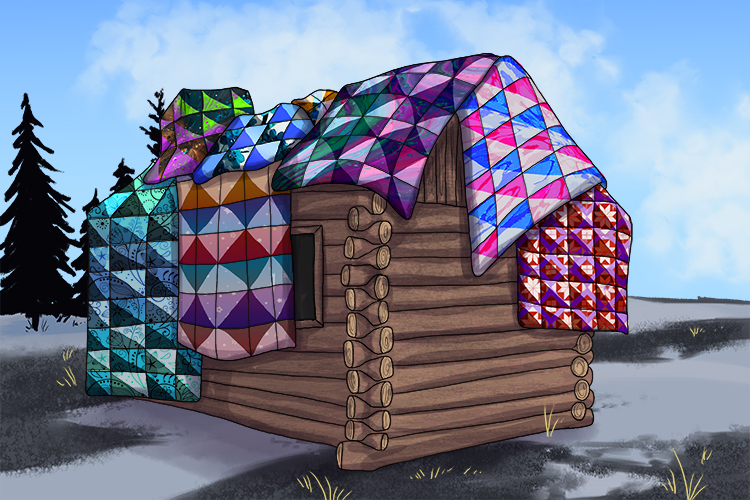
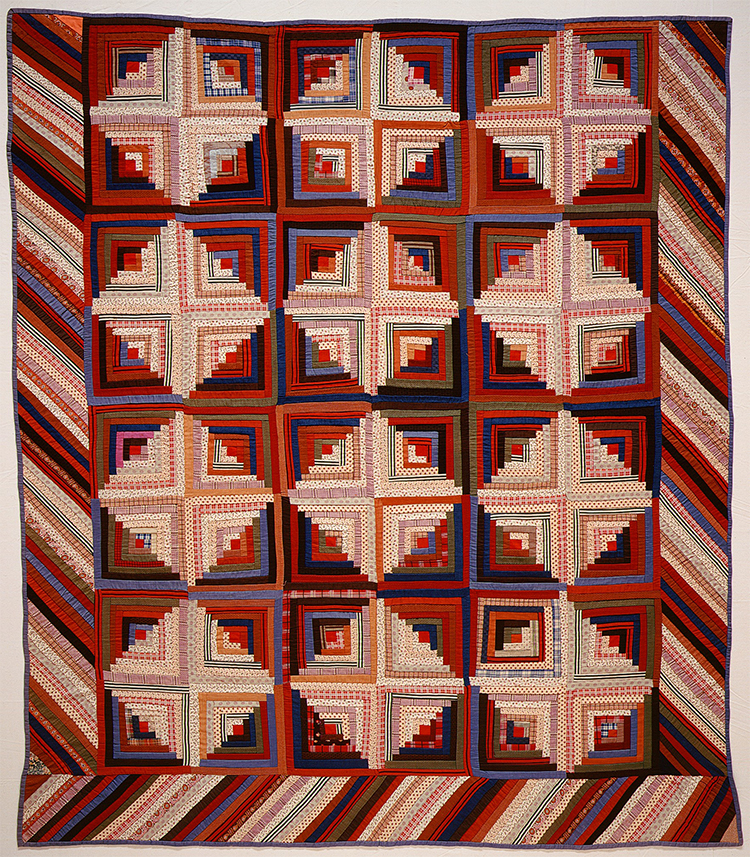
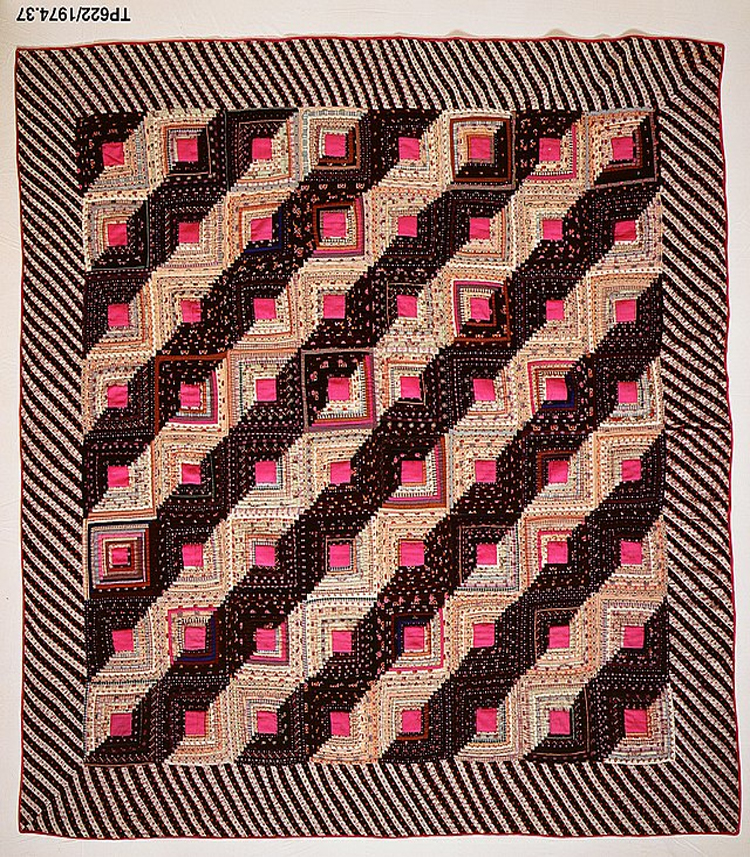
For this project, you will need:
- A jelly roll of fabric strips, with light and dark fabric. These usually contain 40 pieces of fabric ready cut at 21/2 inches by 40 inches and should be more than enough to make the 12 squares.
- A needle and thread (if you have access to a sewing machine, it will save a lot of time, but this can be sewn by hand).
- Scissors
- A ruler
- Large piece of flannel fabric for the backing (43.5 inches by 58 inches).
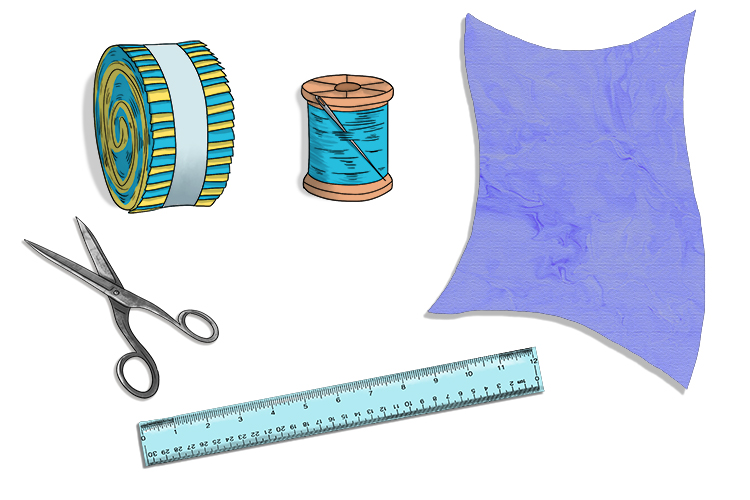
Start by cutting your pieces of fabric to size. If you have a jelly roll, you'll only need to worry about length, not width. To make a square you'll need two of each size, one light and one dark.
21/2 x 41/2 inches of each colour
21/2 x 61/2 inches of each colour
21/2 x 81/2 inches of each colour
21/2 x 101/2 inches of each colour
21/2 x 121/2 inches of each colour
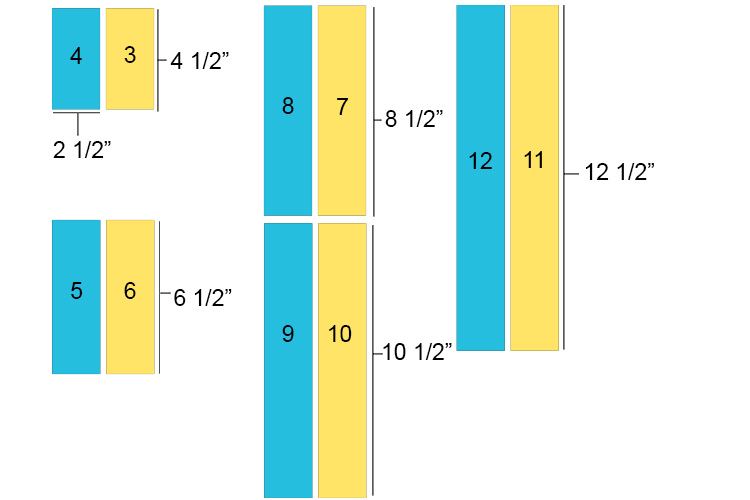
You will also need to cut two squares at 21/2 x 21/2 inches, one in the light-coloured fabric and one in a red (or contrasting coloured) fabric. Finally, you'll need to cut a dark piece of fabric 21/2 x 141/2 inches.
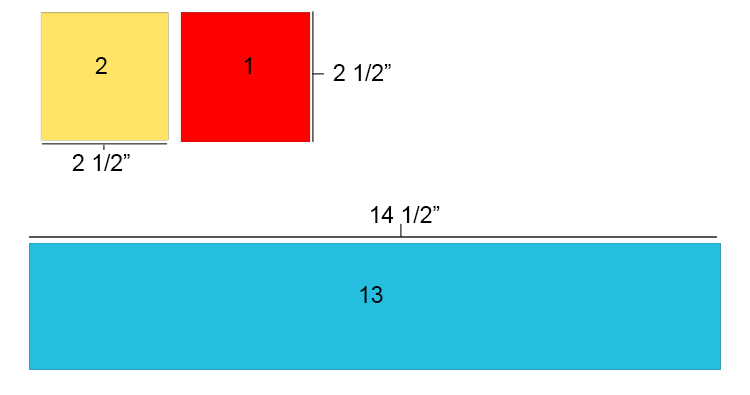
This will be the order in which you'll sew the fabric.
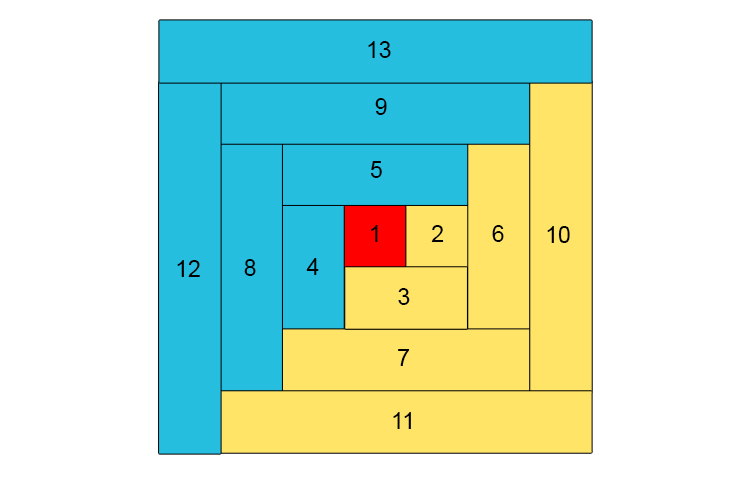
Using the running stitch technique from the Mammoth Memory kantha project, sew each of the pieces together.
Repeat this 11 more times, so you have 12 squares in total.
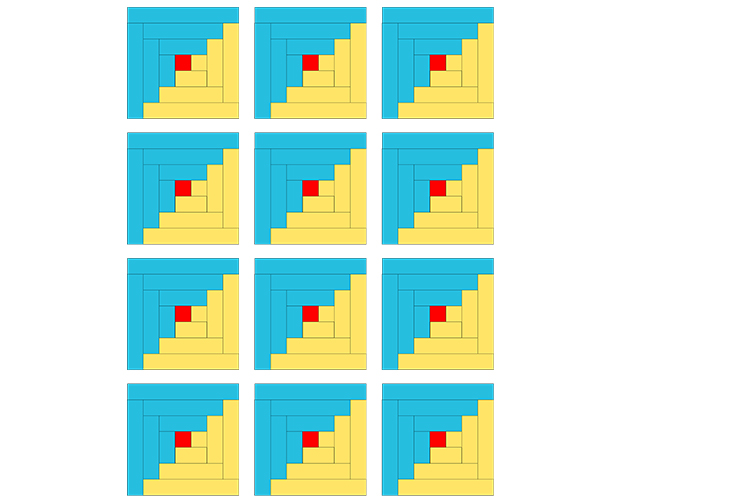
Sew these 12 squares together in a pattern you like. Below are some suggestions:
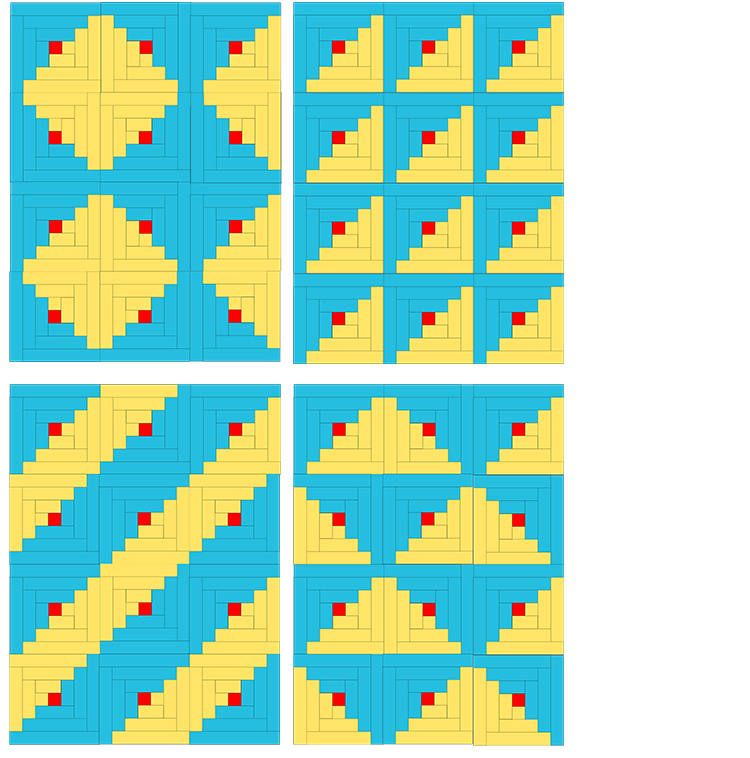
Then, pin your flannel fabric to your patchwork piece, making sure that they're inside out so that when sewn and flipped right way around, the stitching is hidden.
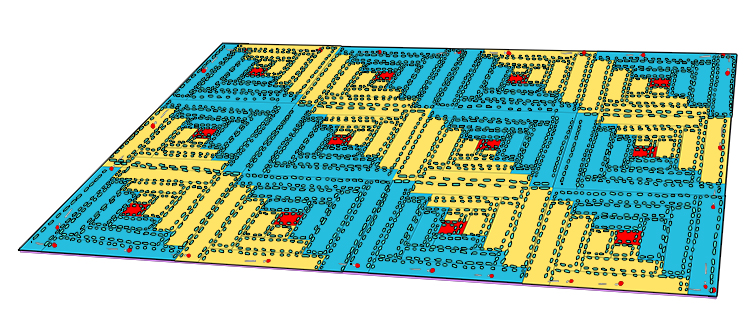
Sew the two pieces together, using a running stitch, leaving a 200mm (8inch) gap so you can turn the fabric the right way round.

Turn the fabric the right way around and finish off the last 8 inches in a thread which matches the colour of the fabric to hide the stitching.
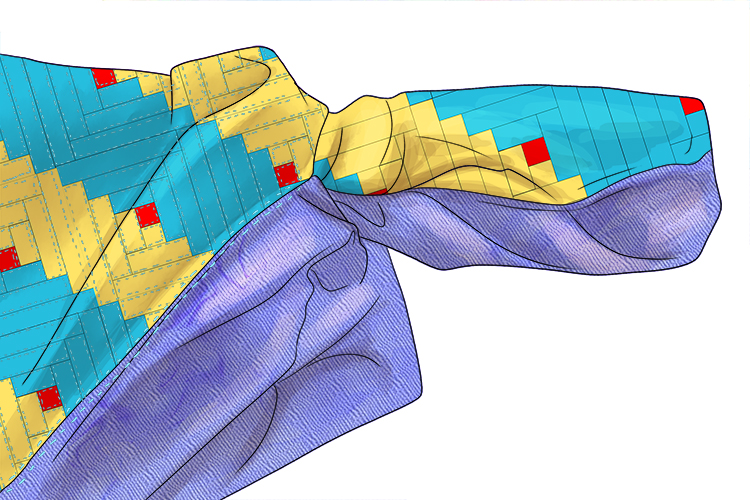
We have used plain colours for our example so the process is easier to see, but you can use patterned fabric for a more exciting quilt!
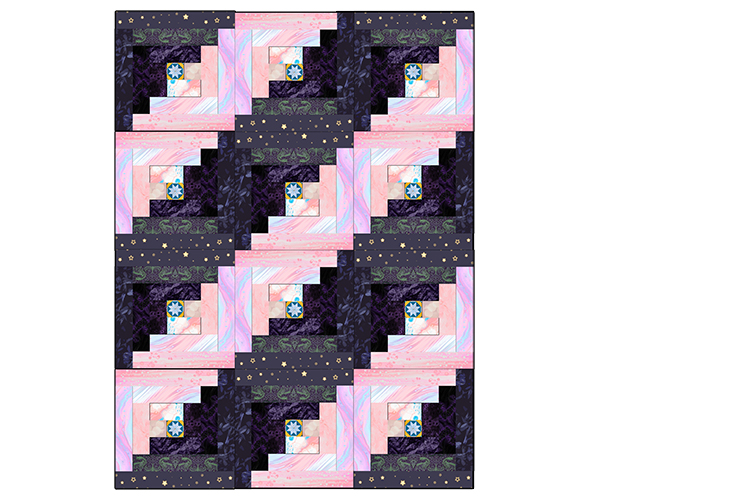
Log-cabin patchwork.




